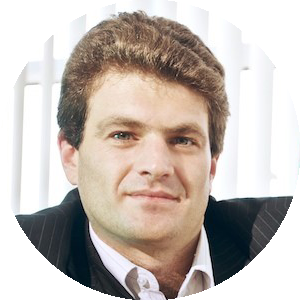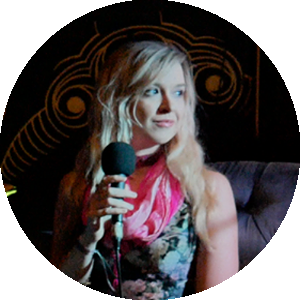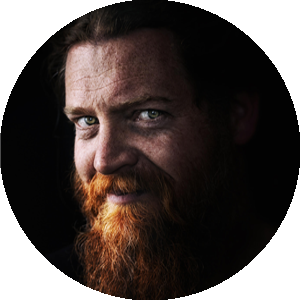Our Purpose

Vision
A healthy and connected community that nurtures human wellbeing and ecological awareness. Supported by the careful use of psychedelics.

Perspective
We provide insight, expertise, and community support to the evolving landscape of medicinal psychedelic research in Australia

Mission
High-impact scientific research into the applications and mechanisms of medicinal psychedelics, and supporting technology.

Direction
Initiate and support medicinal psychedelic research and related technology to build a next-generation mental health system.
Our Values

Evidence-informed
Our approach is iterative and informed by research integrating emerging evidence to maximise benefits and mitigate risks.

Transparency
Our research honours Open Science principles. We value knowledge sharing, education and translation.

Innovation
We are committed to paradigmatic change through the process of evolving knowledge.

Integrity
We are honest, authentic, and accountable. We apply an ethical and considered approach in the pursuit of excellence.

Connection
We seek to enhance the wellbeing of the wider community while supporting an ecosystem of contributors, fellow researchers, and clinicians.

Inclusivity
We stand for equal rights and access. We are committed to research that benefit those from all socio-economic and aim to honour traditional indigenous perspectives.
Our Team

Dr Martin Williams
Executive Director
Martin Williams, PhD is a Senior Research Fellow at the Centre for Mental Health, Swinburne University. His research background is in Medicinal Chemistry and Pharmacology. Martin is a co-investigator on a number of Australian clinical trials of psychedelic-assisted psychotherapy, including the St Vincent’s Hospital Melbourne study of psilocybin-assisted psychotherapy in palliative care; the Monash PsiConnect neuroimaging study of psilocybin with mindfulness meditation; the Swinburne pilot study and 3PAP RCT of 2- vs 3-dose psilocybin-assisted therapy for depression; and several other studies of psilocybin, MDMA and other psychedelics for the treatment of a range of mental health conditions. Martin has been an articulate advocate for psychedelic medical research and the evidence-based clinical translation of psychedelic-assisted therapies for almost twenty years. He has co-authored several papers providing an Australian perspective, presents regularly at conferences and symposia, and is a commentator on psychedelic research and governance in Australian print and broadcast media.

Dr Stephen Bright
Director
Dr Stephen Bright is a clinically-trained psychologist who has worked in the mental and health field for more than 20 years. Dr Bright supervisors PhD and Masters students’ research at Edith Cowan University, where he teaches counselling skills and psychopharmacology. He has published research on psychedelics, psychometrics and drug policy. Dr Bright is the principal investigator and co-therapist for Australia’s first clinical trial of MDMA for post-traumatic stress disorder (PTSD). He is also an Associate Investigator and lead therapist for WA’s first trial of psilocybin-assisted psychotherapy. Dr Bright has given expert testimony to parliamentary inquest and court hearings. He was awarded Edith Cowan University’s Most Prolific Conversation Author in 2018 and 2019. In his spare time, Stephen enjoys kite surfing along Perth’s beaches.

Melissa Warner
Secretary
Melissa Warner is a multidisciplinary researcher, educator, technologist, and artist inspired by the intersection of neuroscience, contemplative science, extended reality, and psychedelic-therapy. As a Research Fellow at The Intangible Realities Laboratory and Swinburne University, her research explores how altered states such as psychedelics, meditation and virtual reality can foster wisdom and well-being.She serves as Director of Cyberdelic Nexus and PATHS XR, where she creates immersive virtual reality experiences designed to inspire personal insight. A meditation teacher at Signs of Life Psychology, Melissa supports individuals on their contemplative path, by deepening connection with heart-mind. Melissa is a founding partner of Anam Cara, Centre for Contemplative and Psychedelic Therapies designing and teaching short and extended programs informed by ethical clinical practice and harm reduction.

Dr Karen Hitchcock
Director
Dr Karen Hitchcock is a specialist physician and fellow of the Royal Australian College of Physicians. She worked in major metropolitan hospitals for fifteen years before moving into private practice. Dr Hitchcock was one of Australia’s first authorised prescribers of medicinal cannabis. She was an associate investigator and trial therapist in the St. Vincent’s hospital Melbourne study of psilocybin assisted psychotherapy in palliative care. Karen has been a vocal advocate for drug reform, cannabis and psychedelic medicine for many years.
Karen holds a PhD in English Literature and is an award-winning writer of fiction and non- fiction focussing on medicine and society. She has written three books and has been a columnist and essayist for the Monthly magazine since 2012.

Jonathan Carmichael
Director
Jonathan Carmichael is an ethnobotanical activist who is interested in social justice and the environment. He is a co-founder, conference director and President of the charity Entheogenesis Australis (EGA), which is devoted to critical thinking and knowledge sharing around ethnobotanical plants, fungi, nature, and sustainability. Jonathan has been working as its primary driver in a volunteer capacity for almost two decades. He is also a founding member of the charity Psychedelic Research in Science & Medicine (PRISM) and is active on their committee. He is also an artistic and freelance photographer, and his photographic works have been published and shown in a number of galleries.
Building Australia's psychedelic research network
Current and future Australian research in this space will offer a crucial pathway for the provision of psychedelic-assisted therapy and to develop our understanding of consciousness itself. Notably, none of the current research into psychedelic-assisted treatments for mental illness in Australia is receiving government funding. With your support, our research paves the way for establishing evidence-informed psychedelic-assisted treatments
